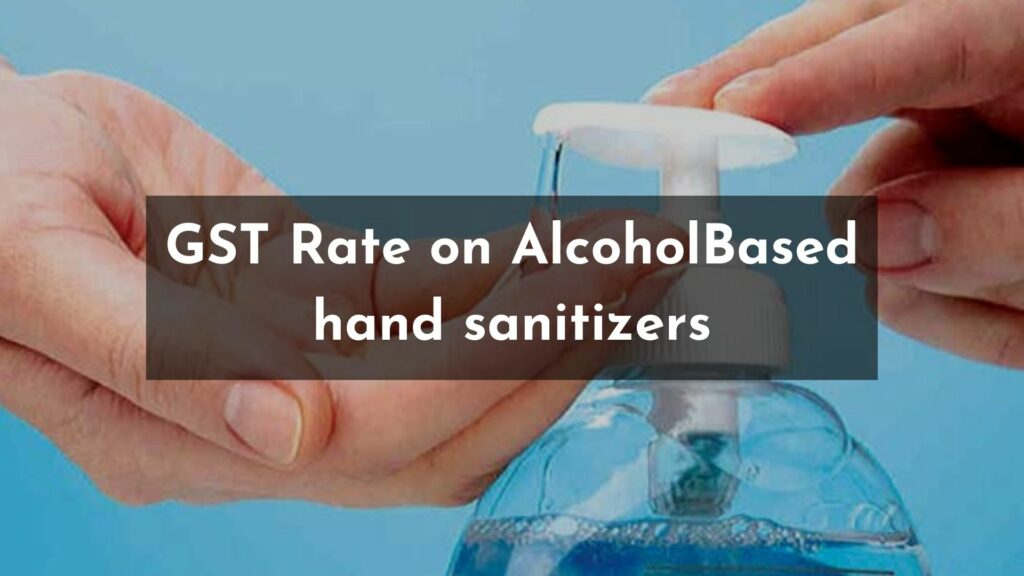GST Rate on Alcohol Based Hand Sanitizers
GST Rate on Alcohol-Based Hand Sanitizers- The hand sanitizer industry is currently expanding as a result of the COVID-19 outbreak. With the enormous increase in demand, there are now more hand sanitizer producers. The GST implications for hand sanitizer are a big topic in addition to the rising demand and manufacturers.
The Authority of Advance Ruling in Goa investigated the question for the first time and decided that alcohol-based hand sanitisers are liable to 18 per cent GST. The raised GST rates provoked a significant market uproar. On June 15, 2020, the Ministry of Finance issued a press statement describing the GST and seeking to justify the increased GST rate in order to settle the dispute.

The aforementioned Advance ruling, as well as the accompanying press announcement, are the focus of this article.
Advance Ruling on the matter
In the case of Springfields (India) Distilleries, the Authority of Advance Ruling, Goa recently addressed the issue of levying GST on hand sanitisers. According to the application, hand sanitisers are covered under HSN 30049087 and will be subject to a 12% GST.
Based on the submission and personal hearing, the advance ruling authority made the following conclusion:
- Alcohol-containing hand sanitisers are categorised as HSN 3808 and are subject to an 18% GST.
- Hand sanitisers have been listed as an essential product by the Ministry of Consumer Affairs. However, just classifying things as essential commodities will not result in the commodity/good being excluded from GST..
Applicable GST Rate
The government clarified the appropriate GST rate in a press statement dated July 15, 2020, in light of a recent Advance Ruling Judgment and increased demand for hand sanitizer as a result of the COVID-19 pandemic.
Hand sanitizers are disinfectants such as antibacterial liquids, Dettol, soaps, and other similar items, as per the definition. As a result, it will be liable to GST at the rate of 18%.
Higher GST Rate
As per press release, the government has presented the following grounds in favour of levying GST at an 18% rate on hand sanitizers:
- Because hand sanitizers require inputs like as chemicals, packing material, and other components, the government claims that cutting the GST rate will ultimately result in an “inverted duty structure.” The 18% GST applies to the aforementioned inputs and additional input services used in the production of hand sanitizers.
- An ‘inverted duty structure’ will result if the GST rate on the end product, i.e., hand sanitizer, is decreased. Because of the inverted tariff system, the local producer will ultimately lose money.
- Reduced GST rates would encourage more imports- The government has also stated that lowering the GST rate on hand sanitiser would make imports cheaper. Because of the lower price, more vendors will be enticed to import hand sanitiser rather than compete in the Indian market. This will clearly contradict the government’s Atmanirbhar Bharat policy.



